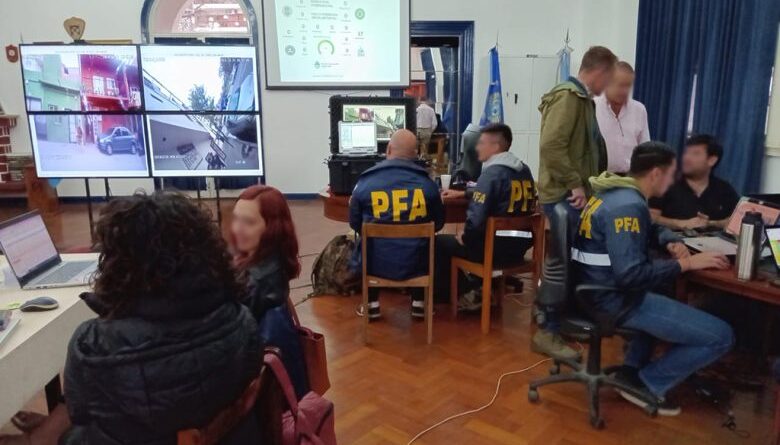Interpol Arrests Over 300 Tied to Black Axe Criminal Group
More than 300 persons have been detained by the International Criminal Police Organization on suspicion of having ties to Black Axe, one of the most dangerous criminal networks in West Africa, and other related organizations.
A covert criminal organization operating globally, the Black Axe is involved in prostitution, human trafficking, and assassination operations. But the group’s main source of income is cybercrime.
The operation has resulted in hundreds of arrests, the seizure of $3 million worth of assets, and the collapse of numerous criminal networks worldwide, according to a statement from the organization.
Operation Jackal III targeted online financial fraud and the West African syndicates that perpetrated it. It took place from 10 April to 3 July and covered 21 nations on five continents.
More than 720 bank accounts were blocked in addition to the identification of over 400 more suspects.
In order to strengthen the Economic and Financial Crimes Commission’s ability to combat digital offenses, President Bola Tinubu promised to enhance funds for the commission in February 2024.
“The volume of financial fraud stemming from West Africa is alarming and increasing,” stated Isaac Oginni, Director of INTERPOL’s Financial Crime and Anti-Corruption Centre (IFCACC). The outcomes of this operation highlight how important it is for foreign law enforcement agencies to work together to tackle these vast criminal networks.
We are able to lessen the power and ability of some of the most dangerous organized criminal figures in West Africa to hurt communities worldwide by identifying suspects, recovering illicit monies, and locking them up.
Supernotes’
In Argentina, Operation Jackal III saw the dismantling of a Nigerian-led transnational criminal network following a five-year investigation. The Federal Police seized USD 1.2 million in ‘supernotes’ – high-quality counterfeit banknotes – arrested 72 suspects and froze approximately 100 bank accounts.
The network, which is currently being investigated in more than 40 countries for possible money laundering, utilized money mules to open bank accounts all around the world. The suspects include nationals of Venezuela, Nigeria, Argentina, and Colombia.
More than 160 people fell victim to fraud, some of them were forced to sell their houses or take out substantial loans as a result of their severe financial losses.
Unlawful Money Trails
The head of Argentina’s National Central Bureau, Diego Verdun, stated:
“Operation Jackal is an important step forward in the fight against online financial fraud in West Africa and shows unequivocally that cybercriminals are unable to elude the attention of INTERPOL’s 196 member nations, particularly in Argentina.
“INTERPOL and the international police community ensure that these criminals will be relentlessly pursued and brought to justice no matter where they try to hide by following illegal money trails throughout the world.”
In a different case, it took action against national West African organized crime syndicates, capturing cocaine, about EUR 45,000 in cash, and apprehending several people.
Transactions using cryptocurrency
A Nigerian network that recruited people as money mule recruiters and laundered money from victims of online financial crime around Europe was taken down by Portuguese criminal police. During the process, more than 25 members of the syndicate were found.
Large payments to Nigerian bank accounts, cryptocurrency transactions, and intricate money laundering schemes were all exposed by data from confiscated laptops and phones.
The INTERPOL headquarters helps nations by enabling the sharing of intelligence and the recognition and capture of offenders.
In Argentina, Australia, Brazil, Canada, Cote D’Ivoire, France, Germany, Indonesia, Ireland, Italy, Japan, Malaysia, Netherlands, Nigeria, Portugal, South Africa, Spain, Sweden, Switzerland, United Kingdom, and the United States, Operation Jackal III mobilized police forces, financial intelligence units, asset recovery offices, and private sector partners.
The Nigerian Senate voiced worries in November 2023 on the $500 million that the nation loses each year to various sorts of cybercrime.



